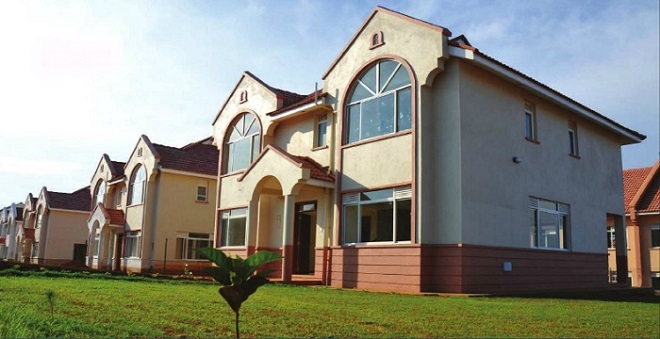
One of Africa’s richest men, Kampala property mogul Sudhir Ruparelia says no bank is interested in taking the property of a client who defaults on a loan.
In an exclusive interview, Sudhir told The Independent that when clients default on loans and banks are forced to foreclose, there are usually no buyers for the mortgaged property and the lenders lose because their “funds are stuck in the structures”.
Sudhir who has, according to the 2016 Forbes richest list, seen his net worth shrink by about US$300 million to US$800 million was commenting on the growing list of foreclosures affecting top property developers and dealers.
Once seen as a flourishing segment, Uganda’s property market is looking rather off-color with slow sales, sliding prices/rent, and the unsold inventory is rising.
There has been an increase in property repossessions over the past six months to June this year by various lending institutions as a result of bad loans due to high interest rates. This has in turn created fear to acquire mortgage among potential property buyers or to use their property as collateral for loans to finance other business ventures.
The latest Knight Frank property report shows decreased interest in, especially, high end properties.
The price of properties has as a result declined by between 10 and 15%.
At least five companies have either closed or gone under including Hossana Estates, Ms Rabbai, and Paflo. These follow the demise of Property Masters about a decade ago and expose challenges that proprietors in the segment grapple with.
Barclays Bank is foreclosing on a top hotel venture, J&M Airport Road Hotel and Leisure Centre Ltd and the associated properties, to recover at least Shs4.7 billion.
Another prominent recent case involves Jomayi Property Consultants, one of the leading real estate companies. Centenary Bank on May 5 ran advertisements of intention to sell off Jomayi’s mortgaged assets unless it cleared an outstanding loan of Shs1.5 billion.
The Independent has learnt that Jomayi and Centenary Bank have since worked their loan arrangements.
High cost of finance
But Sudhir, who is a major player in the property market, owns one of the biggest banks in Uganda, and has been linked to several repossessions, says the high cost of financing is the main reason for the collapse of property companies and bank repossession of their assets.
“Looking at the micro-economic environment in Uganda, the interest rates are always very high averaging 24.5%, making majority of the people unable to service their mortgages,” Ruparelia told The Independent.
“In addition, developers normally borrow money from commercial banks with the hope that their business will flourish. Unfortunately, sometimes things don’t work as per their expectations due to changes in micro-economic environment and end up losing their properties.”
Sudhir says the current slowing down of the economy has left developers unable to repay their mortgages and consequently losing their properties and eventual collapse.
“But we are hoping that investments in the oil industry will raise the demand for properties, accompanied with their ability to repay loans,” he says.
Judy Rugasira, the managing director at the property management and consultancy firm, Knight Frank Uganda, re-echoes Sudhir’s argument on the high finance costs in Uganda.
“Many times developers borrow the funds in dollars and consequently leading to a surge in loan repayment as the shilling depreciates each year,” she adds.
Currently, statistics from the Bank of Uganda shows that the value of the shilling has depreciated by about 100% from Shs1, 720 in 2000 to Shs3, 400 per US dollar in 2016. This means that a person who borrowed long term funds for his/her development projects will pay more than twice the amount of money borrowed for the same period plus interest.
Rugasira adds that many times, the property developments are in most instances overvalued, meaning that the monthly loan repayments that are mainly based on the price of the property are usually high, while the returns from the investments are low and unable to service the loan.
In other cases, the property is mortgaged to borrow money to use in other businesses. In cases of an economic slowdown such as the current one, the loan cannot be repaid and consequently there is foreclosure on the mortgaged property.

Property developers to blame
But, according to Rugasira, there are cases where developers go wrong in executing their development projects to the extent that their once flourishing business fails to live to their expectations.
“A lot of us, unfortunately, borrow to fund our lifestyles. So, if you are borrowing funds to buy a car, travel, and to spent lavishly on consumables, then, it is going to be difficult for you to be able to repay the loan,” she says.
In addition, Andrew Kasirye, the marketing manager at HB Matovu Property Consultants Ltd told The Independent, poor management at some property firms contributes to poor performance and collapse. He says there is greed and fraud.
“We have seen some of these companies selling the same property especially land to multiple buyers with the intent to defraud,” he says, “Investment in property market needs high level of integrity, patience, and trustworthiness in order to thrive for years.”
For Barot Miraj, the managing director at Tirupati Development Uganda Ltd, another big real estate company, the biggest problem is the copycat culture. He says the lack of innovative ideas has killed off growth and development of the Uganda’s property market.
“The challenge in this country is not having a multiple idea. You cannot do the same thing again and again,” says Miraji.
He says while dealers fail to innovate, the clients are always interested in new products. He says Tirupati’s strategy is to try new ventures, including construction of industrial parks.
He says delays by government bureaucrats to approval designs and other requirements needed to develop a property affects borrowers since the loans accumulate interest without development not progressing.
Going forward, Rugasira says the banks’ repossessing of mortgaged properties is not the solution. She says repossessions could instead lead to a glut especially if all the financial institutions offload the properties on the market at the same time.
“There need for all the stakeholders in the industry to innovate and come up with ideas on how they are going to solve the current problem,” she says, “Restructure loans if possible, draw out the tenure longer, as opposed to repossessions and auctions.”
She also says borrowers need financial literacy lessons to help them better assess whether the properties being invested in will repay the loan and earn a profit.
She says many developers borrow without carrying out any homework, be it due diligence, or feasibility study. Many do not have a financial model of how the venture will successfully work.
“Many times, you find that by the time they go to the ground, the design is wrong, the financial model is not working, the project is out of speculation, and so these development ends up failing,” she says.
She adds that Knight Frank is currently reaching out to developers to at least ensure that before they break the ground, they do a feasibility study for the venture to avoid loans they cannot repay.
****
editor@independent.co.ug
 The Independent Uganda: You get the Truth we Pay the Price
The Independent Uganda: You get the Truth we Pay the Price


